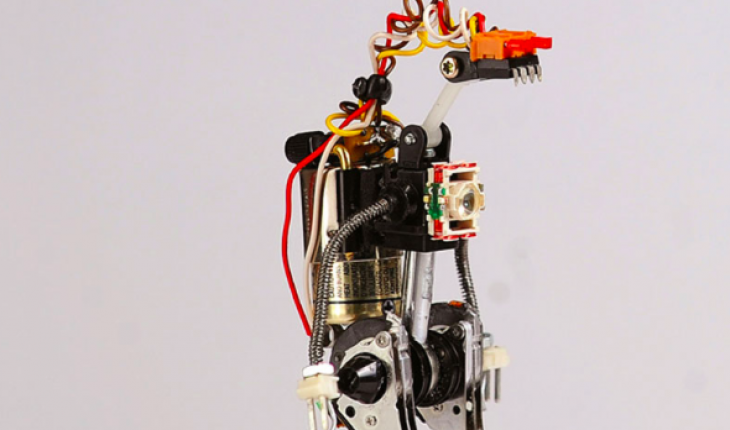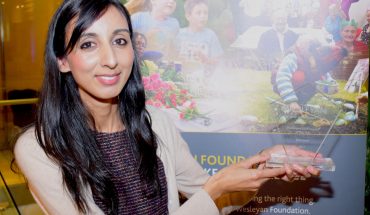This week, Irish author Mark O’Connell won the prestigious £30,000 Wellcome Book Prize 2018 for his critically acclaimed debut To Be a Machine.
Edmund De Waal, Chair of Judges, 2018 Wellcome Book Prize, said his book was ‘a passionate, entertaining and cogent examination of those who would choose to live forever.”
To Be a Machine: Adventures among cyborgs, utopians, hackers and the futurists solving the modest problem of death, is the first full-length exploration of transhumanism, a movement that seeks to cheat mortality and use technology for human evolution.
O’Connell was selected from a shortlist of six to win the prestigious £30,000 prize, which celebrates exceptional works of fiction and non-fiction that illuminate the many ways that health and medicine touch our lives. Artist and writer Edmund de Waal OBE, Chair of Judges, made the announcement at the award ceremony at Wellcome Collection, London, praising To Be a Machine as a book that brings into focus timely issues about mortality, what it might mean to be a machine and what it truly means to be human.
To Be a Machine reflects a cultural obsession with futuristic dystopias, fuelled by TV series such as Westworld, Black Mirror and Altered Carbon. Likened to Jon Ronson, Don DeLillo and Louis Theroux, O’Connell goes further to explore the philosophy and science behind transhumanism, looking at current technological developments together with the opportunities and concerns for the future.
O’Connell presents hilarious and challenging insights into a movement that believes we must merge with machines to transcend our physical and intellectual capacities or risk becoming obsolete. He encounters the developers attempting to convert human minds into code, the self-proclaimed cyborgs inserting tech implants beneath their skin, and the human bodies cryogenically frozen in time on the promise of a future resurrection.
To Be a Machine takes the reader from the sublime to the ridiculous. It considers human fragility and our animal natures, as well as an obsession with immortality and technology’s potential to change the future for all of us.
Mark O’Connell, 38, is the second Irish author and second debut to take home the Wellcome Book Prize, following Suzanne O’Sullivan who was awarded the 2016 prize for her first book It’s All in Your Head.
The other titles shortlisted for the 2018 Wellcome Book Prize were: Stay With Me by Ayọ̀bámi Adébáyọ̀, The Butchering Art by Lindsey Fitzharris, With the End in Mind by Kathryn Mannix, Mayhem: A memoir by Sigrid Rausing and The Vaccine Race by Meredith Wadman.
Edmund de Waal, Chair of Judges, commented on behalf of the judging panel: “Mark O’Connell brilliantly examines issues of technology and singularity. In doing so he brings into focus timely issues about mortality, what it might mean to be a machine and what it truly means to be human. This is a book that will start conversations and deepen debates. It is a wonderful winner of the Wellcome Book Prize.”
Kirty Topiwala, Publisher at Wellcome Collection and Wellcome Book Prize Manager, said: “This book is fresh, funny and disquieting. It raises profound questions about our future and challenges how we think about health and humanity. This is very much at the core of what we do at Wellcome Collection, making To Be A Machine an exciting and worthy winner of this ever-diverse prize.”
Wellcome Collection, Euston
183 Euston Road, London NW1 2BE; tel. 0207 611 2222
Gallery opening hours Mon- Gallery closed; Tues & Wed 10am – 6pm; Thurs 10am -10pm; Fri & Sat – 10am-6pm
- People’s Choice Victory for Down’s Syndrome Scotland Garden at Chelsea 2025 - 28th May 2025
- Cadogan: A Chelsea Family By Tamsin Perrett - 3rd May 2025
- Dream Worlds a new exhibition in Cambridge - 14th December 2024








Nice book. Prize as an incentive may be ok but associating money with a prize is not a right thing. I believe if I write a book , I write that as I like doing that and I do not write that for a prize what to talk of money associated with that prize. The money with the Booker Prize must be done away with and be instead be used to teach and train people in doing that. I expect that the author would use that money for doing what I have suggested herein.